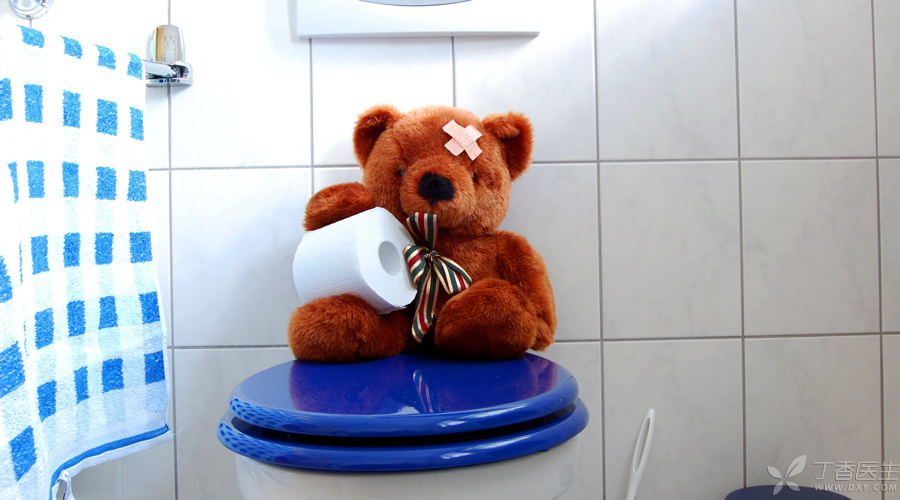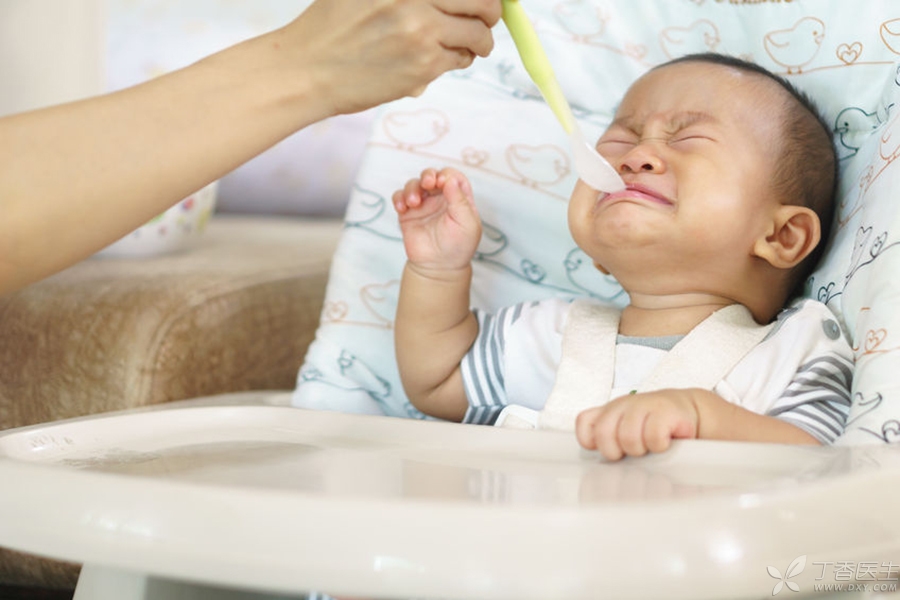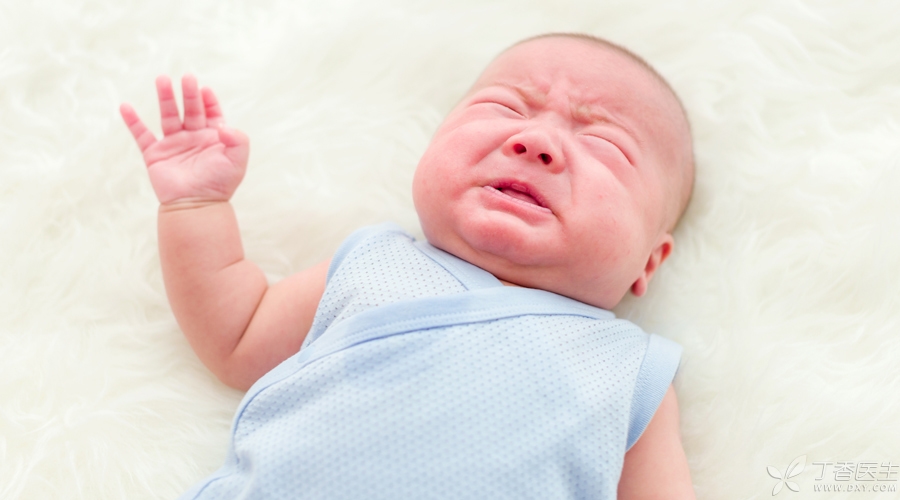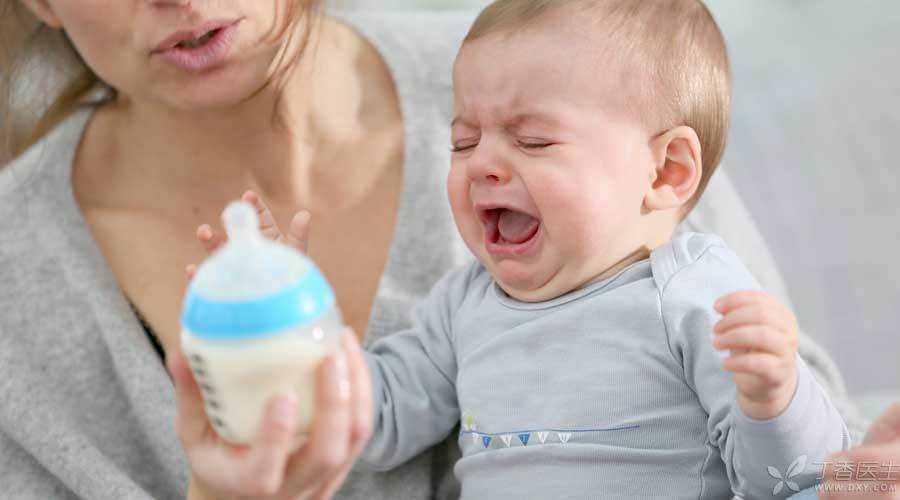 A few days ago, a friend asked for help and said that his baby had been constipated since he added supplementary foods. It was still very difficult to pull. Increasing water consumption and vegetable and fruit puree still did not improve.
A few days ago, a friend asked for help and said that his baby had been constipated since he added supplementary foods. It was still very difficult to pull. Increasing water consumption and vegetable and fruit puree still did not improve.
Dr. Clove took the baby’s recipe and consulted nutritionist Li Liangli. Finally, she found the answer: the baby was constipated because there was a kind of food that she didn’t eat right.
What food? Vegetables? Fruit?
No, it’s too little fat.
What? If you eat less fat, you will feel constipated? Dr. Clove was surprised and asked carefully. By the way, after adding supplementary foods, the baby often asked about constipation and diarrhea.
Constipation Problem after Supplementary Food Addition
Many mothers have misunderstood the understanding of constipation. They think that the reduction of poop frequency is constipation. In fact, after adding supplementary foods such as semi-solid or solid foods, the baby’s poop characteristics will change. The most important change is to reduce the number of times, and the poop shape will change from thinner liquid to soft and rotten solid. This is the normal defecation change after adding supplementary foods, and there is no need to worry about constipation.
If the baby has difficulty defecating, his face turns red every time he defecates, and he cries loudly whenever he wants to defecate, it may indeed be constipation.
There are usually three causes of constipation:
1. Baby’s intolerance to complementary foods
The biggest cause of constipation after supplementary foods are added is intolerance to newly added supplementary foods.
One of the principles for adding supplementary foods is to add only one kind of food at a time, so that if the baby is intolerant to this kind of food, it is more convenient and simple to think that the new food may cause discomfort to the baby.
Countermeasures:
Try to feed this kind of food after a period of time. If the baby is still unwell, avoid this kind of food for the time being.

2. Insufficient intake of dietary fiber.
Dietary fiber can promote intestinal peristalsis, which will lead to slow intestinal peristalsis and difficult defecation when lacking.
Coping: Combined with the baby’s actual diet, suitable as a source of dietary fiber complementary foods include: various mushrooms, beans, fruits and vegetables. For example, mushrooms, peas, seeded fruits (kiwi fruit, pitaya, figs, strawberries), etc. These foods can be properly added to the baby’s complementary foods to provide the baby with rich dietary fiber and prevent constipation.
3. Insufficient fat intake.
Inadequate fat intake can also lead to constipation.
Babies under 1 year old use breast milk or formula milk as their main energy source, and milk is rich in fat, so ensuring milk quantity is the key, and the cart before the horse cannot be put because of the addition of supplementary foods.
After one year old, three meals become the main energy source for babies. Some babies’ diets are mainly based on carbohydrate-rich foods, such as porridge, soft rice, noodles and steamed bread. Lack of fat-rich food sources is likely to cause constipation caused by insufficient fat intake.
How to deal with it: Increase the proportion of fatty foods, such as milk and dairy products, meat, eggs, nuts and edible oil.

4. Not enough exercise.
Although babies under one year old mainly sleep, mothers can help babies do passive exercises, so that babies can exercise on their stomach, such as looking up and climbing, increase the amount of exercise, help intestinal peristalsis and promote defecation.
Diarrhea Problem after Supplementary Food Addition

My baby has diarrhea every time she eats supplementary food? Several times a day, sometimes what to eat and what to pull, sad to death, is this time to stop supplementary food?
The baby has obvious diarrhea after eating supplementary foods. The most common reason is also intolerance to newly added supplementary foods. The treatment method is the same as constipation caused by food intolerance, which is briefly avoided.
Other causes of diarrhea:
1. Dyspeptic diarrhea
In addition to intolerance, because the baby’s gastrointestinal function is not yet mature, excessive intake of supplementary foods or too greasy (usually too much meat) is also a common cause of diarrhea. This kind of diarrhea is called dyspeptic diarrhea.
Dyspepsia type diarrhea baby, usually stool sour odor, visible undigested food particles or residues, stool volume is large, and usually fecal examination is normal. This kind of dyspepsia type diarrhea generally lasts for 2-3 days, suspension of breast milk or formula milk feeding can shorten the course of the disease, but because the baby within 1 year old is mainly milk, usually stopping milk is not feasible.
How to deal with it: Don’t feed your baby on an empty stomach, you can eat some light and digestible supplementary foods first, such as rice flour, gruel, rotten noodles, mashed potatoes and so on, and then feed a small amount of milk. Avoid all fat-rich supplementary foods before symptoms disappear.

2. Infectious diarrhea
Infectious diarrhea is divided into viral diarrhea and bacterial diarrhea.
Bacterial diarrhea is characterized by acute onset and quick recovery. However, bacterial diarrhea is not the main cause of baby diarrhea after adding supplementary foods. Most mothers will pay special attention to the freshness of food materials and the cleanliness of containers.
For babies, viral diarrhea, such as norovirus and rotavirus, is more common. Diarrhea caused by these two viruses is usually caused by unclean hand contact.
Countermeasures:
If it is suspected that the baby has infectious diarrhea, mothers should take the baby to the hospital in time to treat infectious diarrhea. Generally, they need to go to the hospital for stool tests to make a definite diagnosis.
Bacterial diarrhea can be shortened by antibiotics according to the doctor’s advice, but there is no specific drug for viral diarrhea. In addition to symptomatic treatment, the baby can only wait for recovery.
Diet is very important at this time. Unreasonable arrangement of supplementary food will lead to slow recovery of the baby and affect the short-term or even long-term growth and development.

During diarrhea, the most important principle of supplementary food arrangement is to supplement water and prevent dehydration, including water and water-rich foods, such as porridge and rotten noodles. If diarrhea occurs frequently, oral rehydration salts can be considered to quickly supplement water and minerals to correct dehydration (do not mix by themselves).
After the frequency of diarrhea is reduced (symptoms are relieved), do not immediately resume the previous diet. Supplementary foods are light and easy to digest. Avoid greasy foods and sweets. Foods rich in high-quality protein can be supplied as usual in an appropriate amount, such as lean meat, fish and shrimp, etc. Under normal circumstances, it is not necessary to stop feeding.
